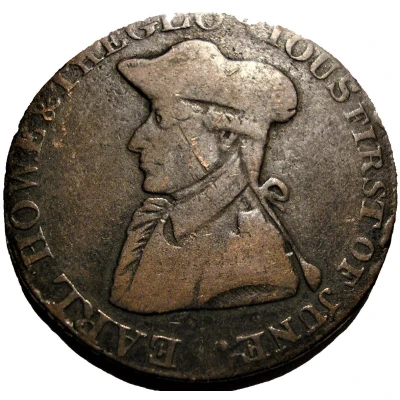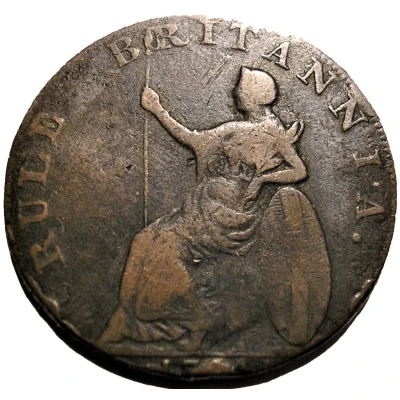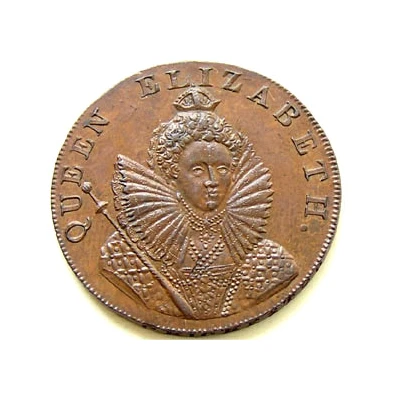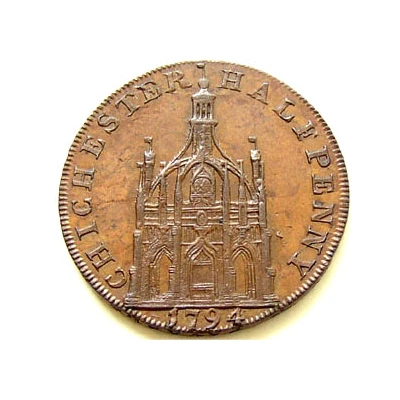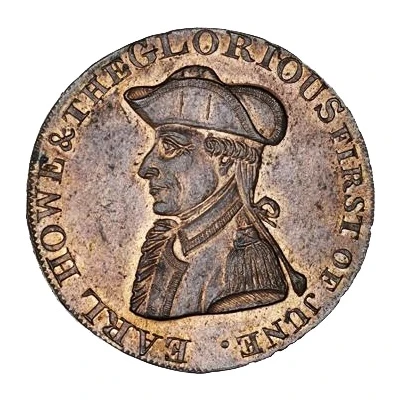
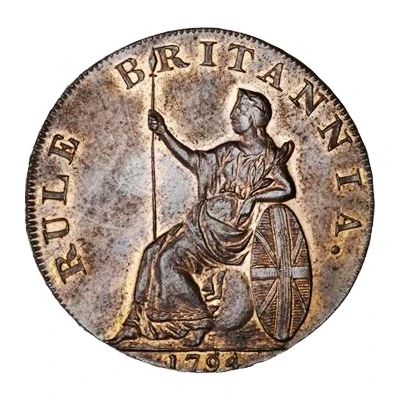

© Dix Noonan Webb
½ Penny Hampshire - Emsworth / J. Stride
1794 year| Copper | - | - |
| Issuer | United Kingdom (United Kingdom, British Overseas Territories and Crown Dependencies) |
|---|---|
| Type | Token |
| Year | 1794 |
| Value | ½ Penny (1⁄480) |
| Currency | Conder tokens (1787-1797) |
| Composition | Copper |
| Shape | Round |
| Technique | Milled |
| Demonetized | Yes |
| Updated | 2024-10-09 |
| Numista | N#236738 |
|---|---|
| Rarity index | 88% |
Reverse
Seated figure of Britannia with spear and shield, legend around, date in exergue.
Note: the spear does not touch R
Script: Latin
Lettering:
RULE BRITANNIA.
1794
Edge
Incuse lettering
Lettering: EMSWORTH HALFPENNY PAYABLE BY IOHN STRIDE X
Comment
Engraver -- Wyon. Manufacturer -- Kempson.Proprietor -- John Stride, a Grocer and Tea-dealer.
Admiral of the Fleet Richard Howe, 1st Earl Howe, KG (1726–1799) was a British naval officer. At the beginning of the American War of Independence, Howe was known to be sympathetic to the colonists. He had known Benjamin Franklin since late 1774 and was joined in a commission with his brother, General Sir William Howe, head of the land forces, to attempt a reconciliation.
https://en.wikipedia.org/wiki/Richard_Howe,_1st_Earl_Howe#American_Revolutionary_War
The Glorious First of June of 1794 was the first and largest fleet action of the naval conflict between the Kingdom of Great Britain and the First French Republic during the French Revolutionary Wars. The British Channel Fleet under Admiral Lord Howe attempted to prevent the passage of a vital French grain convoy from the United States, which was protected by the French Atlantic Fleet, in the Atlantic Ocean, some 400 nautical miles (700 km) west of the French island of Ushant on 1 June 1794.
https://en.wikipedia.org/wiki/Glorious_First_of_June
Interesting fact
The A Token ½ Penny (Hampshire - Emsworth / J. Stride) 1794 coin from the United Kingdom is interesting because it was issued during a time of severe coinage shortages in the country. To address this issue, local authorities and merchants issued their own tokens, like this one, which were accepted as currency by the community. This coin's design features the image of a shield with the initials "J.S." (for John Stride) on one side and the inscription "Half Penny" on the other. It was made of copper, a common material used for coinage during that time. Despite its small denomination, this coin is a valuable piece of numismatic history, offering a glimpse into the economic and monetary challenges faced by the United Kingdom in the late 18th century.
